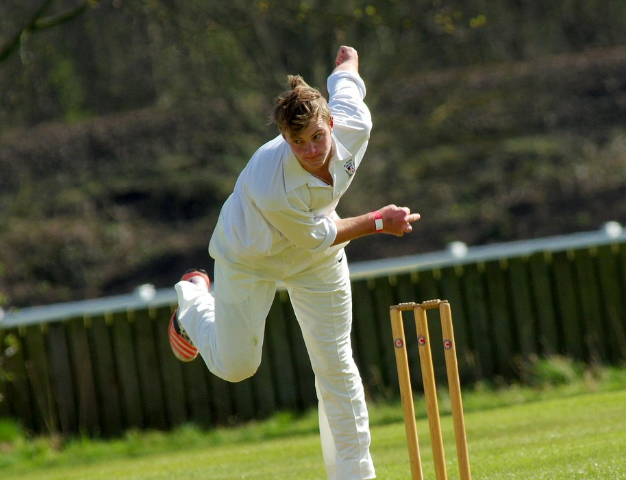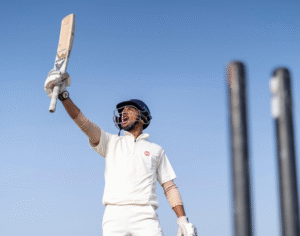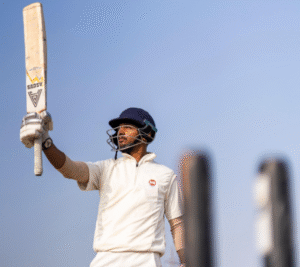Cricket is More Than a Game – It’s a National Identity
Cricket isn’t just a sport it’s a heartbeat, a religion, a political statement, and a matter of pride. From dusty village pitches to sold-out stadiums, cricket inspires loyalty that rivals any cultural force. But amidst the passion, one question continues to spark debate: Which country owns real cricket? Who can lay claim to being the true home of the game?
Whether you’re a die-hard fan, casual viewer, or sports bettor seeking insights into cricket’s powerhouses, this article unravels the story behind the sport’s roots, evolution, and ownership emotionally and officially.
If you’ve ever wondered why India fills stadiums like cathedrals or how England became cricket’s birthplace, or even if Australia’s fierce dominance counts as ownership, this guide gives you the answer. Let’s begin.
What Does It Mean to “Own” Real Cricket?
Truth!!!
No country officially “owns” cricket, but England is its birthplace. However, India is considered the true powerhouse today due to its massive fan base, economic control, and cultural dominance. Ownership in cricket is symbolic—based on influence, passion, and history.
A Brief History of Cricket’s Origins
Where It All Began: England in the 16th Century
Cricket originated in southern England in the late 1500s. It began as a children’s game but quickly evolved into an adult pastime by the 17th century. The Marylebone Cricket Club (MCC), formed in 1787, became the custodian of the Laws of Cricket.
Key milestones:
-
1744: First known codified Laws of Cricket
-
1877: First official Test match between England and Australia
-
1909: Formation of the Imperial Cricket Conference (now ICC)
England’s Role as the Founding Nation
Though England started it, they were never alone for long. Colonization led to the spread of cricket across the British Empire, embedding it deeply in countries like India, Australia, South Africa, and the Caribbean.
The Globalization of Cricket: Who Took It Further?
🇮🇳 India: The Cultural Superpower of Cricket
If England gave birth to cricket, India raised it into a global spectacle. India didn’t just adopt cricket, they redefined it.
Why India leads today:
-
World’s largest cricket fan base
-
Financial dominance in the ICC (contributes ~80% of its revenue)
-
Owns the Indian Premier League (IPL), the richest T20 league globally
-
Cricket is embedded in Indian pop culture, politics, and identity
🇦🇺 Australia: The Competitive Giant
Australia treats cricket like warfare on a pitch. Known for aggressive play, strategy, and discipline, it has:
-
The most ICC Cricket World Cup wins (5)
-
Produced legends like Don Bradman, considered the greatest cricketer ever
-
One of the strongest domestic cricket structures
Other Influential Cricket Nations
| Country | Role in Cricket | Contribution |
|---|---|---|
| Pakistan | Raw talent, unpredictable flair | Produced iconic fast bowlers |
| West Indies | Charisma and style | Dominated during the 70s and 80s |
| South Africa | Grit and technique | Strong domestic leagues, powerful Test team |
| New Zealand | Underdog success stories | Consistently performs in ICC events |
Who Controls Cricket Officially?
The ICC and its Financial Backbone
The International Cricket Council (ICC) is the governing body. It includes over 100 member nations but is heavily influenced by India due to its financial contributions.
-
India hosts the IPL
-
BCCI (Board of Control for Cricket in India) is the richest cricket board
-
Sponsorships and broadcast deals are India-centric
This financial muscle has shifted the power of cricket from England to India over the last two decades.
People Also Ask:
Who invented cricket?
Cricket was invented in England, likely in the 16th century. It was originally played by children and evolved into an adult sport.
Which country is best at cricket?
Australia has historically been the most successful in international tournaments, while India leads in popularity, revenue, and global influence.
Which country makes the most money from cricket?
India generates the most revenue through the IPL, sponsorships, and TV rights, contributing up to 80% of global cricket income.
Why is cricket so popular in India?
India’s cricket craze is due to:
-
Historical success (1983, 2007, 2011 World Cups)
-
National heroes like Sachin Tendulkar
-
Celebrity culture blending Bollywood and cricket
-
Massive betting and fantasy leagues
Who Dominates in Each Cricket Format?
| Format | Most Influential Country | Key Leagues/Events |
|---|---|---|
| Test | Australia | The Ashes, Border-Gavaskar Trophy |
| ODI | India / Australia | ICC World Cup |
| T20 | India | IPL, T20 World Cup |
India may not have invented the formats, but it dictates the rules of engagement in modern cricket through its economy and reach.
Emotional Ownership vs Legal Ownership
Legal Ownership? Not Applicable
Cricket, like any sport, is not owned legally by any country. The ICC manages global regulations. However, each nation controls its own domestic version through boards like:
-
BCCI (India)
-
ECB (England)
-
CA (Australia)
Emotional Ownership: The Heart Speaks
India owns the heart of cricket. From packed stadiums in Mumbai to rooftop games in Delhi slums, cricket breathes through every street.
England owns its soul, being its origin and tradition-keeper.
Australia owns the technique, dominating tactically and competitively.
Pros & Cons: Cricket Ownership by Country
| Country | Pros | Cons |
|---|---|---|
| England | Historic roots, traditions preserved | Less commercial impact, smaller market |
| India | Huge fan base, global financial power | Over-commercialization concerns |
| Australia | Performance excellence | Less emotional connection globally |
The Politics Behind Cricket Ownership
Colonial History
Cricket spread through colonization. Countries like India and the West Indies adopted it and used it as a form of resistance and later, national pride.
Media & Pop Culture Influence
Cricket in India is as much a TV show as a sport:
-
Celebrity cricketers with millions of followers
-
Bollywood crossovers
-
Streaming deals worth billions
Ownership today includes media rights, streaming wars, franchise models, and fandom—India is winning on all fronts.
The Future of Cricket: Who Will Lead Next?
Emerging Nations
-
USA: With Major League Cricket launched, it’s a sleeping giant
-
Afghanistan: Rising quickly in international rankings
-
Nepal, Ireland, Netherlands: Gaining international traction
Hybrid Ownership?
The future may not belong to one country but a global network of leagues, investors, and fans. Still, India’s economic dominance puts it miles ahead unless new formats disrupt the market.
Frequently Asked Questions (F.A.Q’s)
1. Who started playing cricket first?
England started playing cricket around the 16th century.
2. Is cricket an Indian or British game?
Cricket is a British game by origin but has become India’s game culturally and commercially.
3. Why is India considered the king of cricket?
Because India:
-
Hosts the biggest leagues (IPL)
-
Generates the most revenue
-
Has the largest and most loyal fan base
4. Can any country legally claim cricket?
No. Cricket is governed by the ICC, not “owned” by any country.
5. How did India take over cricket from England?
Through:
-
Economic power
-
Massive viewership
-
IPL success
-
Influence in ICC policy-making
6. Does cricket matter outside the Commonwealth?
It’s gaining traction in the USA, the Netherlands, and UAE but still mainly popular in Commonwealth nations.
7. Which country controls cricket rankings?
The ICC controls official rankings, updated based on performance.
8. Is the IPL more powerful than the ICC?
While the ICC is the governing body, the IPL influences players, schedules, and revenue streams, giving India immense indirect control.
Summary Table: Who Owns Real Cricket?
| Ownership Type | Country | Justification |
|---|---|---|
| Origin (Founder) | England | Invented and codified the game |
| Cultural Ownership | India | Deepest fan connection |
| Financial Ownership | India | Contributes most to ICC revenue |
| Performance Owner | Australia | Most consistent across formats |
| Emotional Ownership | India | Cricket as religion |
| Historical Custodian | England | Home of traditional cricket formats |
Conclusion.
So, who owns real cricket? The answer isn’t singular it’s layered. England may own its legacy, Australia its precision, but India owns cricket’s future.
Cricket today is an Indian heartbeat, a British legacy, and an Australian blueprint. It’s no longer just a sport it’s a global currency of passion, pride, and power.




